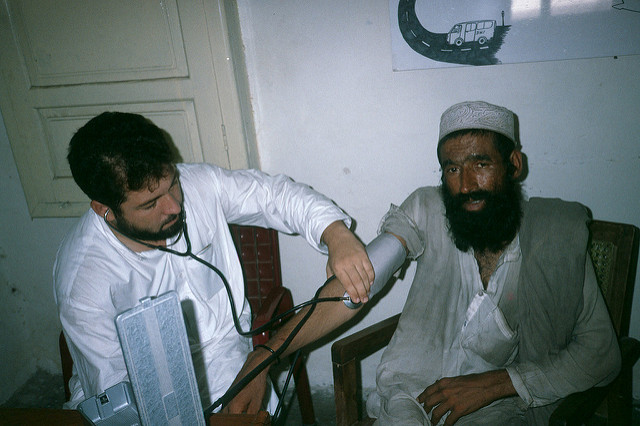It is human nature to wish to ease pain and to stimulate ebbing vitality. There is no normal adult who, experiencing severe pain or sorrow or fatigue, and thoroughly appreciating the immediate action of an easily accessible opiate, is not likely in a moment of least resistance to take it.
Every one who has become addicted to a drug has started out with small occasional doses, and no one has expected to fall a victim to the habit; indeed, many have been totally unaware that the medicine they were taking contained any drug whatever.
Thus, the danger being one that threatens us all, it is every man’s business to insist that the entire handling and sale of the drug be under as careful supervision as possible. It is not going too far to say that up to the present time most drug-takers have been unfairly treated by society. They have not been properly safeguarded from forming the habit or properly helped to overcome it.
It has been criminally easy for any one to acquire the drug habit. Few physicians have recognised that it is not safe for most persons to know what will ease pain. When an opiate is necessary, it should be given only on prescription, and its presence should then be thoroughly disguised.
A patient goes to a physician to be cured; consequently, when his pain disappears, he naturally believes that this is due to the treatment he has received.If the physician has used morphine in a disguised form, the patient naturally believes that the cure was effected by some unknown medicine; but if, on the other hand, he has received morphine knowingly, he realises at once that it is this drug which is responsible for easing his pain.
If he has received it hypodermically, the idea is created in his mind that a hypodermic is a necessary part of the treatment. Thus it is clear that the physician who uses his syringe without extreme urgency is greatly to be censured, for the patient who has once seen his pain blunted by the use of a hypodermic eagerly resorts to this means when the pain returns.
Conservative practitioners are keenly aware of this responsibility, and some go so far as never to carry a hypodermic on their visits, though daily observation shows that the average doctor regards it as indispensable. The conservative physician employs only a very small quantity of morphine in any form. One of the busiest and most successful doctors of my acquaintance has used as little as half a grain a year, and another told me he had never gone beyond two grains.
Both of these men know very well that only a small percentage of drug-takers have begun the practice in consequence of a serious ailment, and that even this small percentage might have been decreased by proper medical treatment directed at the cause rather than at its symptom, pain. An opiate, of course, never removes the cause of any physical trouble, but merely blunts the pain due to it; and it does this by tying up the functions of the body.
It is perhaps a conservative estimate that only ten per cent of the entire drug consumption in this country is applied to the purpose of blunting incurable pain. Thus ninety per cent of the opiates used are, strictly speaking, unnecessary. In the innumerable cases that have come under my observation, seventy-five per cent of the habitual users became such without reasonable excuse. Beginning with small occasional doses, they realised within a few weeks that they had lost self-control and could not discontinue the use of the drug.
The man who takes an opiate consciously or unconsciously, and receives from it a soothing or stimulating or pleasant effect, naturally turns to it again in case of the same need. The time soon arrives when the pleasurable part of the effect, if it was ever present, ceases to be obtained; and in order to get the soothing or stimulating effect, the dose must be constantly increased as tolerance increases.
With those who take a drug to blunt a pain which can be removed in no other way, it is fulfilling its legitimate and supreme mission and admits of no substitute. Where it was ever physically necessary, and that necessity still continues, an opiate would seem inevitable. But the percentage of such sufferers, as I have said, is small. The rest are impelled simply by craving, that intolerable craving which arises from deprivation of the drug.
But whether a man has acquired the habit knowingly or unknowingly, its action is always the same. No matter how conscientiously he wishes to discharge his affairs, the drug at once begins to loosen his sense of moral obligation, until in the end it brings about absolute irresponsibility. Avoidance and neglect of customary duties, evasion of new ones, extraordinary resourcefulness in the discovery of the line of least resistance, and finally amazing cunning and treachery: this is the inevitable history.
The drug habit is no respecter of persons. I have had under my care exemplary mothers and wives who became indifferent to their families; clergymen of known sincerity and fervour who became shoplifters and forgers; shrewd, successful business men who became paupers, because the habit left them at the mercy of sharpers after mental deterioration had set in.
But the immediate action of morphine by no means paralyses the mental faculties. Though when once a man becomes addicted to the drug he is incapacitated to deal with himself, yet while he is under its brief influence his mind is sharpened and alert. Under the sway of opium a man does venture some or immoderate things that he would never think of doing otherwise, simply because he has lost the sense of responsibility.
I have had patients who took as much as sixty grains of morphine in a single dose, an overdose for about one hundred and fifty people, and about fifty grains more than the takers could possibly assimilate or needed to produce the required result: an excellent illustration of how the habit destroys all judgment and all sense of proportion.
Against this appalling habit, which can be acquired easily and naturally and the result of which is always complete demoralisation, there is at present no effective safeguard except that provided by nature itself, and this is effective only in certain cases.
It happens that in many people opium produces nausea, and this one thing alone has saved some from the habit; for this type of user never experiences any of the temporarily soothing sensations commonly attributed to the drug. Yet this pitiful natural safeguard, while rarely operative, is more efficacious than any other that up to the present has been provided by man in his heedlessness, indifference, and greed.
Adapted from Habits that Handicap: The Menace of Opium, Alcohol, Tobacco, and the Remedy (1915). Photograph courtesy of Photo RNW.org. Published under a Creative Commons License.





